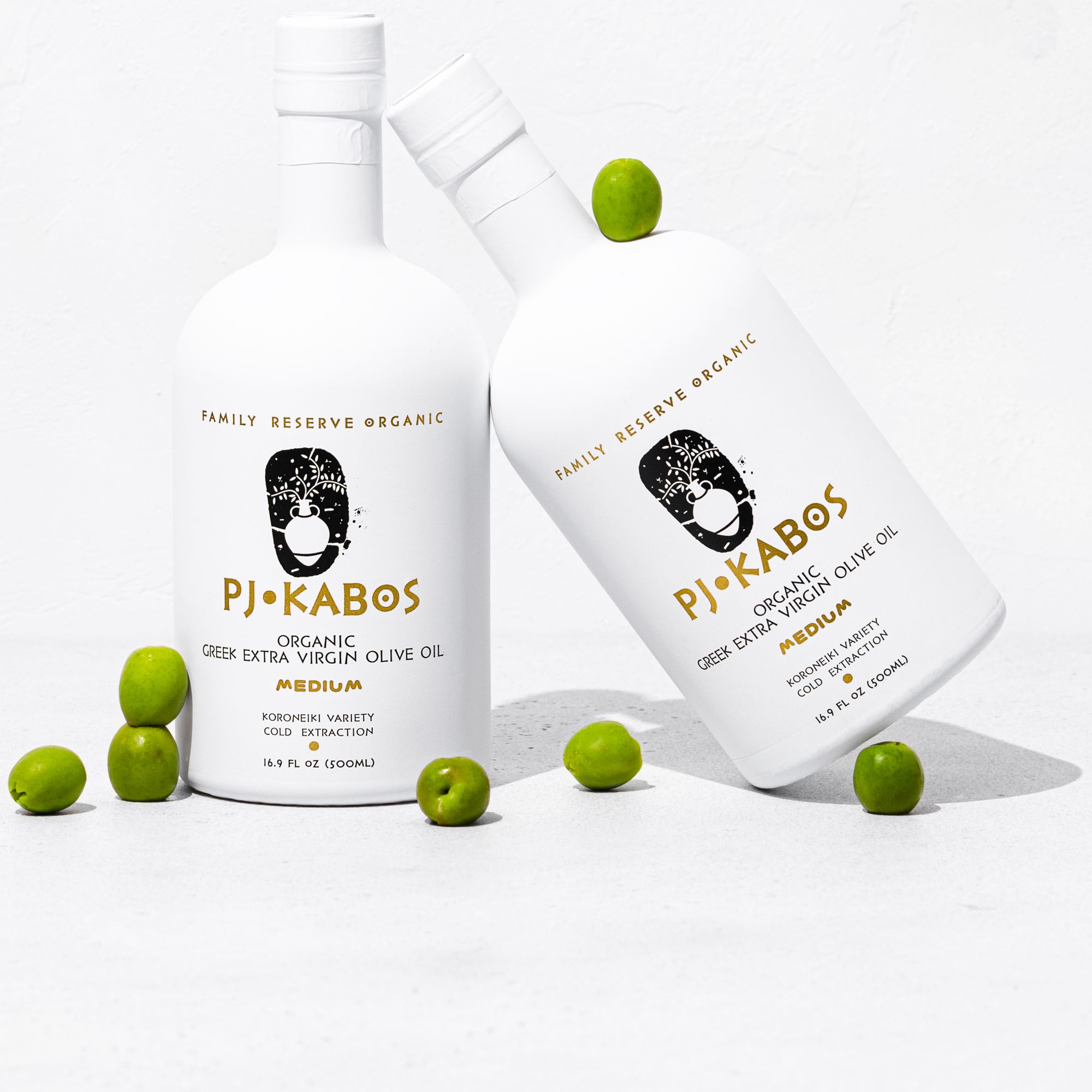Olive oil (specifically, extra virgin olive oil) is known for its powerful health benefits—one of those being that it seems to help reduce chronic inflammation throughout the body.
Chronic inflammation refers to a prolonged inflammatory response characterized by the simultaneous destruction and repair of tissues, and it exacerbates nearly every chronic disease immangeable, including the autoimmune condition rheumatoid arthritis (RA).
Rheumatoid arthritis is an extremely painful condition affecting the joints that causes widespread inflammation and is also made worse by unhealthy, pro-inflammatory foods like excessive sugar. While it can’t be cured with diet alone, research shows that the right foods can help significantly reduce inflammation and make managing the condition much easier.
What is Rheumatoid Arthritis?
Rheumatoid arthritis is an inflammatory autoimmune disease in which your immune system mistakenly attacks the tissue lining of your joints (the synovium). It commonly affects joints in the hands, knees and ankles, causing painful red swelling, stiffness, and inflammation that can eventually lead to bone erosion and cause joints to become deformed and slip out of place. The high levels of inflammation can cause destruction of joints due to the swelling of tissue and because inflammatory chemicals can actually eat into the surrounding cartilage and bone.
Many people with rheumatoid arthritis also experience fatigue and some even have a low-grade fever during flares—periods of time when symptoms are stronger. Beyond messing with your joints, the high levels of inflammation associated with rheumatoid arthritis can also negatively impact and damage other areas of the body, including the eyes, blood vessels, skin, heart, kidneys, nerve tissue, and lungs.
How Does Olive Oil Help?
In addition to eating an overall anti-inflammatory diet, using extra virgin olive oil as your go-to culinary oil may help reduce inflammation and lessen rheumatoid arthritis symptoms (it even made the Arthritis Foundation’s list of best oils for arthritis!). Extra virgin olive oil is the ideal oil for fighting pain and inflammation for two key reasons: It’s rich in monounsaturated fats and polyphenols.
Monounsaturated fats (or MUFAs), including oleic acid (the predominant MUFA found in olive oil), are a subtype of unsaturated fats found in healthy fatty foods like nuts, seeds, avocados, olives, and olive oil. Compared to many other types of fats, MUFAs are highly anti-inflammatory. MUFA-rich diets have been shown to reduce levels of C-reactive protein—a marker of chronic inflammation that’s often highly elevated in people with rheumatoid arthritis and other inflammatory diseases.
Polyphenols are bioactive compounds, or natural chemical molecules, found in small quantities in certain plant-based foods. The most predominant polyphenols in extra virgin olive oil are hydroxytyrosol, oleuropein, and oleocanthal, all of which have potent antioxidant and anti-inflammatory properties. These compounds have even been associated with reduced joint damage in rheumatoid arthritis.
Research shows that oleocanthal (the polyphenol responsible for giving EVOO its classic peppery bite) even has pain-fighting properties that may benefit rheumatoid arthritis sufferers, too. It has a similar mode of action as ibuprofen—which is that it inhibits the production of pro-inflammatory COX1 and COX2 enzymes. Researchers estimate that around 3.5 tablespoons of EVOO is the equivalent of a 200-mg tablet of ibuprofen.
To get more anti-inflammatory bang for your buck, you can actually buy high-polyphenol olive oil. Or, look for olive oils made from the following high-polyphenol olive varieties: Koroneiki, Picual, Moraiolo, Coratina, Mission, Picholine, and Manzanillo.
Adding Olive Oil to an Anti-Inflammatory Diet
Keep in mind, olive oil won’t do much good all by itself! You’ll reap the biggest pain- and inflammation-fighting benefits when you consume it as part of an overall anti-inflammatory diet (like a Mediterranean-style diet) featuring a variety of fruits, vegetables, whole grains, nuts, fish, and other nutrient-dense whole foods. In fact, research has shown that the Mediterranean diet can reduce disease activity, pain, and stiffness in patients with inflammatory arthritis, likely due to its relative abundance of polyphenols, lycopene, omega 3s, vitamins, and trace minerals.
On the other hand, dietary patterns high in refined starches, sugar, and saturated and trans fats may cause an activation of the innate immune system (which may drive inflammation associated with RA), “most likely by excessive production of proinflammatory cytokines,” according to one study.
A great general rule for eating an anti-inflammatory diet is to aim for loads of different colors on your plate. Bright purples, reds, greens, and oranges often indicate high levels of polyphenols and other beneficial plant compounds that can help curb inflammation.
As for specific foods, the following make great additions to an anti-inflammatory diet:
- Olive oil: Swapping out sources of saturated fat like butter for olive oil work wonders for your levels of inflammation (and your heart health). Always opt for extra virgin olive oil, or high-polyphenol olive oil.
- Vegetables: Broccoli, broccoli rabe, purple cabbage, spinach, arugula, kale, tomatoes, carrots, Brussels sprouts, cauliflower, bell peppers, mushrooms, celery, fennel, leeks, beets, potatoes, sweet potatoes, turnips, artichokes, zucchini, eggplant, squash, onions, garlic, cucumber, and literally any other veggie you want to eat.
- Fruits: Berries, lemons, oranges, grapefruit, melons, peaches, plums, apples, pears, pomegranate, apricots, olives, avocados, and pretty much any fruit!
- Nuts + seeds: Almonds, walnuts, pistachios, pine nuts, hazelnuts, cashews, sesame seeds, sunflower seeds, pili nuts, pumpkin seeds, chia seeds, flax seeds, and more.
- Grains: Brown rice, wild rice, quinoa, barley, buckwheat, oats, polenta, bulgur, farro, millet, whole wheat or whole grain bread, pasta, and other whole or minimally processed grains.
- Legumes: Lentils, chickpeas, peas, beans (cannellini beans, red beans, fava beans, lima beans, pinto beans, etc).
- Seafood: Salmon, sardines, anchovies, tuna, trout, mackerel, halibut, sea bass, oysters, mussels, clams, etc.
- Herbs, spices, + flavorings: Balsamic vinegar, cayenne, turmeric, ginger, oregano, thyme, rosemary, mint, cumin, dill, parsley, paprika, basil, sage, cinnamon, etc.
- Beverages: Black tea, green tea, herbal teas, and red wine in moderation.
Product placement
PJ KABOS 'Family Reserve Organic - Medium'
High Phenolic and 2022 Gold-Award Winner.
Declared as 'One of the World's Best Olive Oils'.
Click here to shop.





